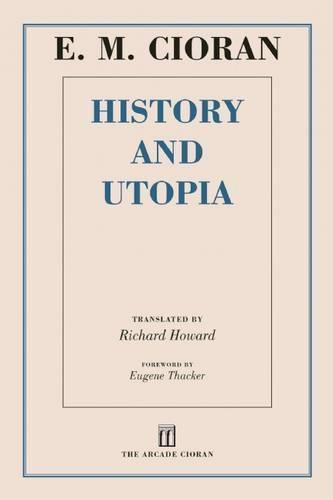Readings Newsletter
Become a Readings Member to make your shopping experience even easier.
Sign in or sign up for free!
You’re not far away from qualifying for FREE standard shipping within Australia
You’ve qualified for FREE standard shipping within Australia
The cart is loading…






Only a monster can allow himself the luxury of seeing things as they are, writes E. M. Cioran, the Romanian-born philosopher who has rightly been compared to Samuel Beckett. In History and Utopia, Cioran the monster writes of politics in its broadest sense, of history, and of the utopian dream. His views are, to say the least, provocative. In one essay he casts a scathing look at democracy, that festival of mediocrity ; in another he turns his uncompromising gaze on Russia, its history, its evolution, and what he calls the virtues of liberty. In the dark shadow of Stalin and Hitler, he writes of tyrants and tyranny with rare lucidity and convincing logic. In Odyssey of Rancor, he examines the deep-rooted dream in all of us to hate our neighbors, to take immediate and irremediable revenge. And, in the final essay, he analyzes the notion of the golden age, the biblical Eden, the utopia of so many poets and thinkers.
$9.00 standard shipping within Australia
FREE standard shipping within Australia for orders over $100.00
Express & International shipping calculated at checkout
Only a monster can allow himself the luxury of seeing things as they are, writes E. M. Cioran, the Romanian-born philosopher who has rightly been compared to Samuel Beckett. In History and Utopia, Cioran the monster writes of politics in its broadest sense, of history, and of the utopian dream. His views are, to say the least, provocative. In one essay he casts a scathing look at democracy, that festival of mediocrity ; in another he turns his uncompromising gaze on Russia, its history, its evolution, and what he calls the virtues of liberty. In the dark shadow of Stalin and Hitler, he writes of tyrants and tyranny with rare lucidity and convincing logic. In Odyssey of Rancor, he examines the deep-rooted dream in all of us to hate our neighbors, to take immediate and irremediable revenge. And, in the final essay, he analyzes the notion of the golden age, the biblical Eden, the utopia of so many poets and thinkers.